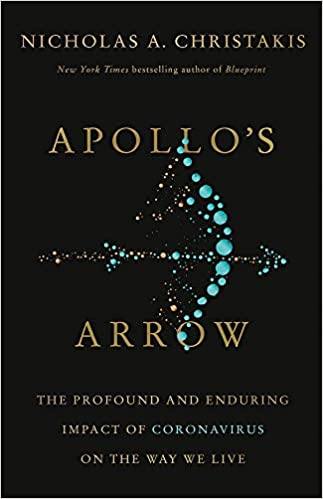Niall Ferguson in the TLS:
 In 2002 the Cambridge astrophysicist and Astronomer Royal Lord Rees predicted that, by the end of 2020, “bioterror or bioerror will lead to one million casualties in a single event”. In 2017 the Harvard psychologist Steven Pinker took the other side in a formal bet. As the terms of the wager defined casualties to include “victims requiring hospitalization”, Rees had already won long before the global death toll of Covid-19 passed the one million mark in September. Sadly for him, the stake was a meagre $400.
In 2002 the Cambridge astrophysicist and Astronomer Royal Lord Rees predicted that, by the end of 2020, “bioterror or bioerror will lead to one million casualties in a single event”. In 2017 the Harvard psychologist Steven Pinker took the other side in a formal bet. As the terms of the wager defined casualties to include “victims requiring hospitalization”, Rees had already won long before the global death toll of Covid-19 passed the one million mark in September. Sadly for him, the stake was a meagre $400.
Nicholas Christakis has given his rapidly written yet magisterial book about the pandemic the title Apollo’s Arrow. The allusion is to the plague the god unleashes against the Achaeans for kidnapping the daughter of his priest Chryses in Book One of Homer’s Iliad. An alternative title might have been Rees’s Bet. In a report from 1998 the US Department of Defense observed that “historians in the next millennium may find that the 20th century’s greatest fallacy was the belief that infectious diseases were nearing elimination”. Pinker was only one of many scholars who subscribed to this belief in the twenty-first century. “Disease outbreaks don’t become pandemics” any more, he argued in Enlightenment Now, because “advances in biology … make it easier for the good guys (and there are many more of them) to identify pathogens, invent antibiotics that overcome antibiotic resistance, and rapidly develop vaccines”.
Pinker was not alone in his complacency.
More here.
